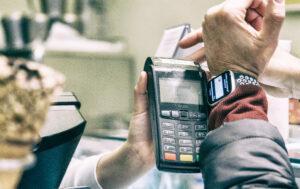
EU regulators have charged Apple with breaking competition law by limiting rivals’ access to technology that is key to making contactless payments, unfairly benefiting its own Apple Pay service.
The European Commission said on Monday that Apple “sets the rules” on its closed platform and expressed concern that it has been limiting access to technology called near field communication (NFC), which rivals need for tap-and-go payments to be made in stores using mobile wallets.
“On a preliminary basis, we have found that Apple abused its dominant position,” said Margrethe Vestager, the commission’s executive vice-president in charge of competition policy.
“Apple restricted access to key inputs that are necessary to develop and run mobile payments apps, so-called ‘mobile wallets’. Evidence on our file indicates that some developers did not go ahead with their plans as they were not able to reach iPhone users.”
The commission said the Silicon Valley company’s Apple Pay service is “by far the largest NFC-based mobile wallet on the market”.
“The preliminary conclusion we reached today relates to mobile payments in shops,” said Vestager. “By excluding others from the game, Apple has unfairly shielded its Apple Pay wallet from competition. If proven, this behaviour would amount to abuse of a dominant position, which is illegal under our rules.”
The commission has issued a statement of objections, detailing the grounds on which it believes the company “may have illegally distorted competition in the market for mobile wallets on Apple devices”, and giving the $2.5tn (£2tn) firm an opportunity to respond.
Apple could face fines worth up to 10% of its global revenues, which totalled $365bn in 2021, if the charges are upheld.
“We designed Apple Pay to provide an easy and secure way for users to digitally present their existing payment cards and for banks and other financial institutions to offer contactless payments for their customers,” said a spokesperson for the company.
“Apple Pay is only one of many options available to European consumers for making payments, and has ensured equal access to NFC while setting industry-leading standards for privacy and security. We will continue to engage with the commission to ensure European consumers have access to the payment option of their choice in a safe and secure environment.”
European regulators are also investigating Apple over how it may be disadvantaging rivals by taking up to a 30% fee on purchases and subscriptions made through its App Store, which it found ultimately resulted in higher prices for consumers, following a complaint lodged by the music streaming service Spotify in 2019.
Read more:
EU claims Apple breaking competition law over contactless payments




